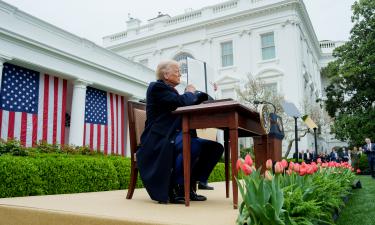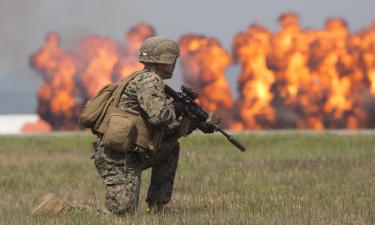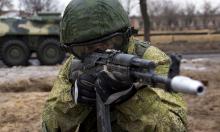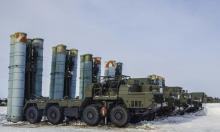Iran seeks Arab support for nuclear program
Iran wanted Arab leaders to support its nuclear program at the World Economic Forum meeting, calling the technology an asset to the Mideast region. But the response was cool and many of Arab allies of the U.S. were worried about the growing influence if Iran.
The push by Iranian hardliner Mohammed J.A. Larijani in an interview with The Associated Press came at the end of the three-day international conference, where non-Arab Iranian delegates found themselves ostracized, and occasionally criticized, by Arab officials.
Larijani, a former deputy foreign minister and the brother of Iran's chief nuclear negotiator, said Arab countries should value Iran's nuclear development because it could help them address their own energy needs.
"Iran will be a partner, a brotherly partner, and will share its capabilities with the people of the region," Larijani told APTN on Sunday.
In contrast, he argued the West would turn a blind eye when Arab countries in the Middle East came looking for nuclear assistance. But Arab diplomats, like Jordanian Foreign Minister Abdul-Ilah al-Khatib, whose country is the conference host, turned a cold shoulder to Larijani and the other Iranian delegates.
"There are serious flaws in the regional order and some countries are interfering in the affairs of Arab countries," al-Khatib said Sunday, referring to Iran's growing influence in Iraq.
Iran also clashed with Arab participants over their efforts to resolve the Israeli-Palestinian crisis, with Mottaki expressing skepticism of progress on Saturday.
Arabs at the conference pressed for the implementation of their recently revived peace initiative, which envisions full Arab recognition of Israel in exchange for lands that Israel captured in the 1967 Mideast war.
The U.S. and Israel have said the plan could be a basis for reviving the Arab-Israeli peace process. But Israel has expressed reservations over many of its provisions, including the call to solve the Palestinian refugee issue.
Israeli Vice premier Shimon Peres said Sunday his government would offer a counterproposal to the initiative soon.
"The Arab League has proposed, fine. We will make a counterproposal," Peres said. There were no details on the proposal.
Israeli Foreign Ministry spokesman Mark Regev repeated Israel's position that the initiative is a "very positive" basis for talks.
"We see it as a manner of dialogue between us and the Arab world and we are hopeful to engage with the Arab world as a result of this initiative," he said.
He added: "Israel has no interest in stagnation and unfortunately, if the Arab initiative is take it or leave it, that will be a recipe for stagnation."
In other conference developments Sunday:
Two U.S. Republican senators attending the forum said the United States has evidence Iran sent weapons and trainers to instruct militants in Iraq to carry out terror attacks there.
Subscribe to Pravda.Ru Telegram channel, Facebook, RSS!





